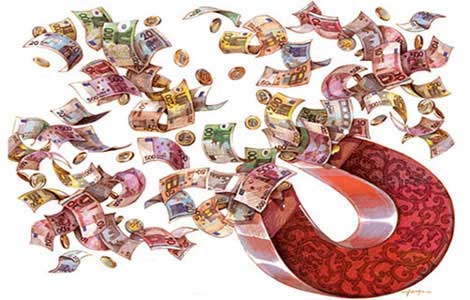
The professor of international relations at the University of Witwatersrand insists even those in the academic community fail to do proper research.
"There is a paradigm or framework for thinking out there. A lot of scholars automatically attach themselves to this idea that the China-Africa relationship has negative consequences for Africa.
"When you challenge them and ask for specific examples, few have anything to add. They are just repeating the things they have heard or a general viewpoint."
None can accuse Shelton of not doing proper research, having done fieldwork research on China's impact on no fewer than 11 African countries.
Two of his four published books, China, Africa and South Africa: South-South Co-operation in a Global Era (with Garth Le Pere), and The Forum on China-Africa Co-operation: A Strategic Opportunity (with Farana Paruk) directly examine the relationship between the world's second-largest economy and the African continent.
"I think China is responsible for a lot of the growth in Africa, because we are selling more and more resources to China. Some of the cities I visit in China are going to double in size in terms of population over the next 20 years and that means more steel, concrete, copper and Africa is providing these raw materials," he says.
Shelton, 56, a relaxed figure who often breaks into laughter, was speaking in his study in the sprawling campus of Witwatersrand University, one of South Africa's premier academic institutions.
He thinks China is sometimes criticized because it is perceived to have got the better of a deal with an African government when the real blame should go to the local politicians who originally struck the agreement.
"When I go to Shanghai, I see a lot of foreign investors there but nobody ever says the foreigners are colonizing or taking control of Shanghai. That is because these foreign companies have to conform to strict rules and regulations all set up by the Shanghai municipal government.
"I think in Africa we have been weak in response to China. We in Africa need to set up rules and strict ways of engaging to maximize our benefits."
Shelton says that South Africa has been the exception to this with foreign investors having to meet stringent criteria.
"South Africa is a different case. You won't see Chinese companies flooding into South Africa. We have very strong trade unions and very strong legislation and minimum wages that are four times higher than those in China."
The academic says Chinese companies also have to contend with the country's Black Economic Empowerment legislation, which requires companies over a certain size to employ specific quotas of black people. One of South Africa's leading employers, SABMiller Plc, has had to agree its own BEE deal with the government.
"If a Chinese company sets up in South Africa it has to establish a partnership with a black business individual. A lot of Chinese companies complain that they don't even know a black businessman," he says.
Shelton, who was born in Johannesburg, is almost a Witwatersrand institution in his own right, having studied up to PhD level at the university as well as spending his entire teaching career there.
He did, however, briefly study at Christian Albrechts University at Kiel in Germany.
Shelton also had a break from teaching when he did a sabbatical at South Africa's Department of Defence in the late 1990s.
"Part of my teaching program is on defense and security issues and my roles was to advise them on restructuring after democratic elections," he says.
Shelton is far from an insular figure, however, and has a particular fascination for Asia. He has visited more than 30 cities in China, making his first visit in 1994, and has been to Hong Kong no fewer than 28 times.
"I know Hong Kong even better than Johannesburg and it is certainly my favorite city. Hong Kong universities have such fantastic resources on China. South African ones are very weak on China and we are trying to build these up."
Shelton says he has been able to witness first hand the transformation of China since reform and opening-up in the late 1970s. "All my Chinese friends say they love China because every year they get an increase in salary and every year their life gets a bit better. Only 30 years ago they used to ride bicycles and now they drive Audis and wear Italian suits."
He believes the country is at a critical phase and the next decade could be historically very important.








